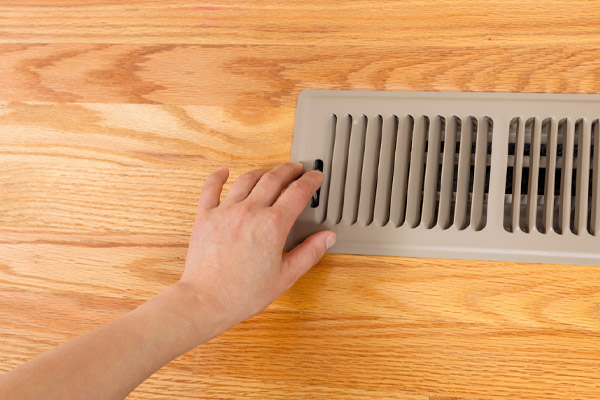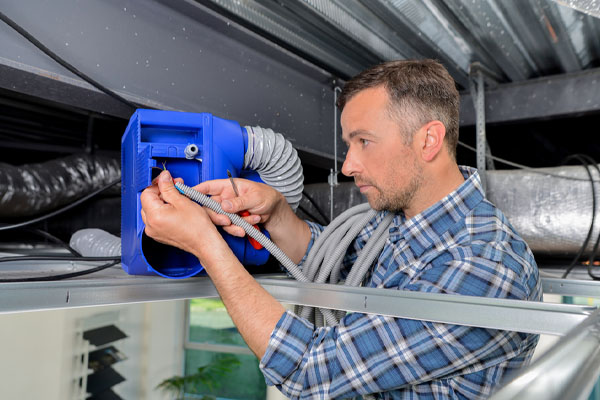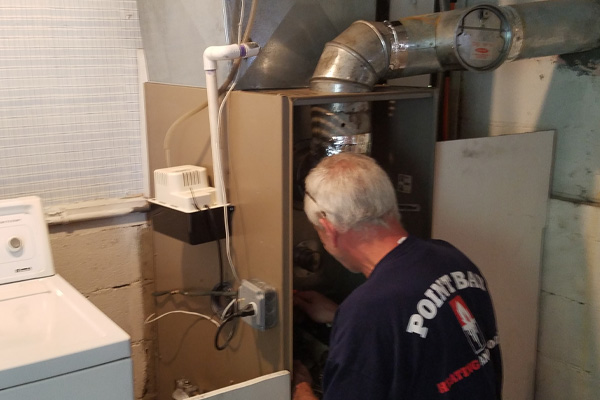Air Quality & Calculating the Right Amount of Home Ventilation

Mastering the art of ventilation is paramount for a home to thrive in terms of its occupants’ health and energy efficiency. Ensuring appropriate home ventilation means better indoor air quality, allowing pollutant removal, moisture regulation, and odor elimination. It also strikes a balance in temperature control, diminishing the reliance on excessive heating or cooling. This article highlights harmonizing consistent fresh air circulation while optimizing energy conservation.
The Basics of Home Ventilation
Contents
- The Basics of Home Ventilation
- Diverse Modes of Home Ventilation
- The Essence of Ventilation in Upholding Indoor Air Quality
- Why Prioritize Optimal Ventilation?
- Factors Dictating Home Ventilation Needs
- Evaluating Your Home’s Ventilation Needs
- The Potential Hazards of a Self-Directed Ventilation Strategy
- Ensuring Optimal Ventilation: Standards and Best Practices
- Strategies to Enhance Household Ventilation
- Assessing the Merits of Home Ventilation
- Final Thoughts
- Call Point Bay Fuel for Expert HVAC Solutions
At its core, ventilation signifies the purposeful circulation of inside and outside air within a space. It’s about ushering in invigorating outdoor air while expelling indoor contaminants and dampness. Central to maintaining a healthful and pleasant household ambiance, home ventilation gifts inhabitants with pure, breathable air.
Diverse Modes of Home Ventilation

Ventilation takes on two primary forms:
- Natural Ventilation: Leveraging the ambient forces of nature, natural ventilation welcomes air through open windows, doors, and vents. It’s an unassisted method of achieving ventilation, influenced by architectural design, positioning, and regional weather patterns.
- Mechanical Ventilation: Mechanized devices like fans, ventilation systems, and conduits determine and maneuver airflow. This becomes indispensable in spaces with scant natural airflow or when exact air exchange standards are obligatory.
The Essence of Ventilation in Upholding Indoor Air Quality
Ventilation’s vital contributions to pristine indoor air quality include:
- Purging of pollutants
- Modulation of humidity
- Removing foul smells
- Reduction of indoor contaminants
- Balance in comfort and temperature
Why Prioritize Optimal Ventilation?

Proper ventilation plays a crucial role in maintaining a healthy indoor environment. It improves air quality by dispersing pollutants like VOCs and allergens, preventing their buildup and reducing respiratory issues. Effective ventilation also controls humidity, deterring mold growth and bacteria, and helps eliminate odors and excess heat. This creates a fresher, more comfortable living space, while significantly benefiting respiratory health by minimizing exposure to harmful particles, thus promoting overall wellness.
Factors Dictating Home Ventilation Needs
The ventilation requirements for a home hinge upon several determinants:
- Architectural Size and Design: A home’s spatial expanse and architectural blueprint considerably dictate air movement within. Larger residences might necessitate multiple ventilation outlets to ensure uniform airflow distribution.
- Number of Residents and Lifestyle Habits: Ventilation demands shift with the number of inhabitants and their daily routines. Increased occupants or activities such as cooking, bathing, or frequent use of household products can intensify the indoor pollutant concentration, emphasizing the need for robust ventilation.
- Environmental Climate and Seasonal Changes: Regional weather patterns play a role in defining ventilation needs. Homes in moisture-rich climates benefit from ventilation to moderate humidity. In contrast, cooler regions need proper airflow to deter indoor moisture accumulation, curtailing mold propagation.
- Structural Materials and Chronological Age: The house’s construction materials and design specifications impact its inherent air exchange capacity. Vintage homes, with potentially lesser airtight features, underscore the value of optimal ventilation. Modern homes, engineered for energy efficiency with superior insulation, might hinge on mechanized ventilation solutions for desired air circulation.
Evaluating Your Home’s Ventilation Needs

To ascertain your home’s ventilation needs, you can consult an HVAC professional for a detailed assessment using techniques like blower door tests and air quality measurements. Alternatively, simple DIY evaluations and calculations based on standards from organizations like ASHRAE can provide rough estimates. Online tools also offer general guidance, but may lack the accuracy of a tailored professional evaluation, especially in considering unique home characteristics and environmental factors.
The Potential Hazards of a Self-Directed Ventilation Strategy
Ventilation planning involves complex factors such as house size, occupancy, and local climate. Amateur calculations can lead to inadequate or excessive airflow, affecting indoor comfort and air quality. Improperly designed systems may introduce external pollutants and allergens, diminishing air quality and increasing health risks. Incorrect installations or modifications to HVAC systems can cause operational issues and expensive repairs, reducing home comfort and efficiency. DIY ventilation projects also risk electrical mishaps, combustion hazards, and non-compliance with building codes, potentially leading to legal or safety issues.
Ensuring Optimal Ventilation: Standards and Best Practices

Institutions such as ASHRAE have formulated comprehensive ventilation standards and best practices, outlining indoor comfort and air purity directives. These delineations clarify ventilation rates, design requisites, and airflow parameters to facilitate optimal ventilation in residential and commercial buildings.
These ventilation criteria accommodate various residential structures, factoring in occupant numbers, structural dimensions, and climatic conditions. Each possesses distinct ventilation prerequisites, from individual houses to apartment complexes and skyscrapers. These standards are devised with versatility, allowing customization based on architectural nuances and resident preferences.
Strategies to Enhance Household Ventilation
To bolster your household’s ventilation, consider the following:
- Routine HVAC Maintenance: Ensure timely cleaning or replacement of air filters, inspect for potential duct leaks, and ascertain the system’s peak performance. An optimally functioning HVAC system facilitates consistent airflow and ventilation.
- Exploring Advanced Ventilation Alternatives: Consider modernizing your ventilation mechanisms in alignment with the latest standards. Mechanical ventilation choices encompass exhaust fans, supply fans, and innovations like heat recovery ventilators (HRVs) or energy recovery ventilators (ERVs). These devices swap indoor stale air with outdoor fresh air while conserving energy, and are particularly beneficial for homes with impeccable sealing.
- Embracing Natural Ventilation: Judiciously open windows to foster cross-ventilation and boost airflow. Arranging windows on opposing walls encourages the influx of fresh air and the expulsion of stale air. Integrate window screens to deter insect intrusion while basking in the refreshing air. Capitalize on ambient outdoor conditions, like the cool evening breeze, to naturally moderate indoor temperatures.
Assessing the Merits of Home Ventilation

Elevating your home’s ventilation brings several advantages, including energy conservation, as it helps stabilize indoor temperatures, reducing the need for excessive heating or cooling. Advanced ventilation systems can even recover heat from outgoing air, enhancing comfort without high energy costs. Additionally, efficient ventilation improves indoor air quality, boosting respiratory health by lowering pollutant and allergen levels, thus enhancing overall well-being. It also plays a crucial role in preserving your home in the long run by preventing moisture build-up, a key factor in mold growth, structural damage, and material degradation. By maintaining optimal humidity levels and averting moisture-related issues, good ventilation ensures the longevity and structural integrity of your home.
Final Thoughts
Safeguarding indoor air quality, comfort, and longevity necessitates meticulous home ventilation. It’s imperative to comprehend the variables that shape ventilation necessities while being mindful of established standards. While DIY ventures can be fraught with complications, engaging experts ensures precise evaluations and bespoke solutions fitting your home’s distinct dynamics. Emphasizing professional counsel helps preempt potential challenges and ensures a refreshing, healthy, and cozy home.
Call Point Bay Fuel for Expert HVAC Solutions
Point Bay Fuel is a premier choice for heating and cooling needs in southern New Jersey. Our team of certified professionals brings expertise in HVAC maintenance, repair, installation, and replacement. Our commitment to excellence ensures you receive unparalleled services every time.
With Point Bay Fuel, you’re not just getting a service but also investing in a comfortable, energy-optimized home. We’re dedicated to offering affordable options without compromising on quality. If you’re contemplating HVAC repair or a complete system overhaul, trust our experts to guide you to a solution that best fits your needs and budget. Your satisfaction remains our top priority.
We stand behind our work with a satisfaction guarantee as a testament to our commitment to quality. To arrange a service visit, contact Point Bay Fuel. We provide hassle-free, in-home estimates. Call now to get started!
Contact us now by calling (732) 349-5059 to speak to one of our home comfort specialists! Click the link to view our service area.

Related Articles:
